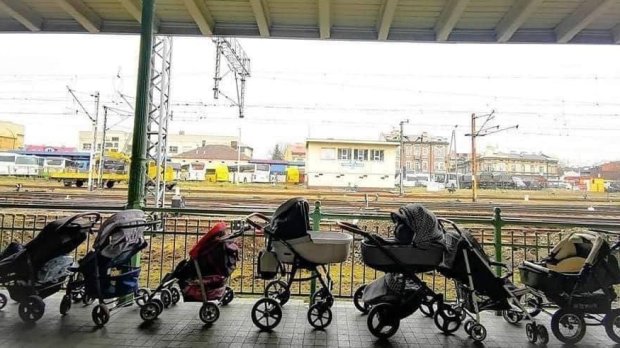To Help Is ‘in Our Blood’
- Share
- Tweet
- Pin
- Share
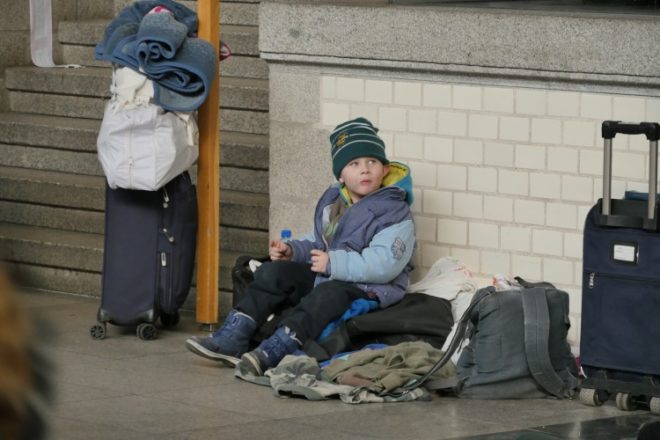
Polish couple inspires Door County residents to aid the open-arms welcome of Ukrainian refugees
Andrzej Bartosiewicz and his wife, Aleksandra, live in Wroclaw, Poland, with their two young children, Jan and Amelia. When they learned that Ukrainians were pouring into Poland following Russia’s invasion, they, like thousands of other Polish people, decided to help.
“Polish people are excellent in crisis situations,” Aleksandra said. “We understand how to mobilize and organize quickly. We know what to do.”
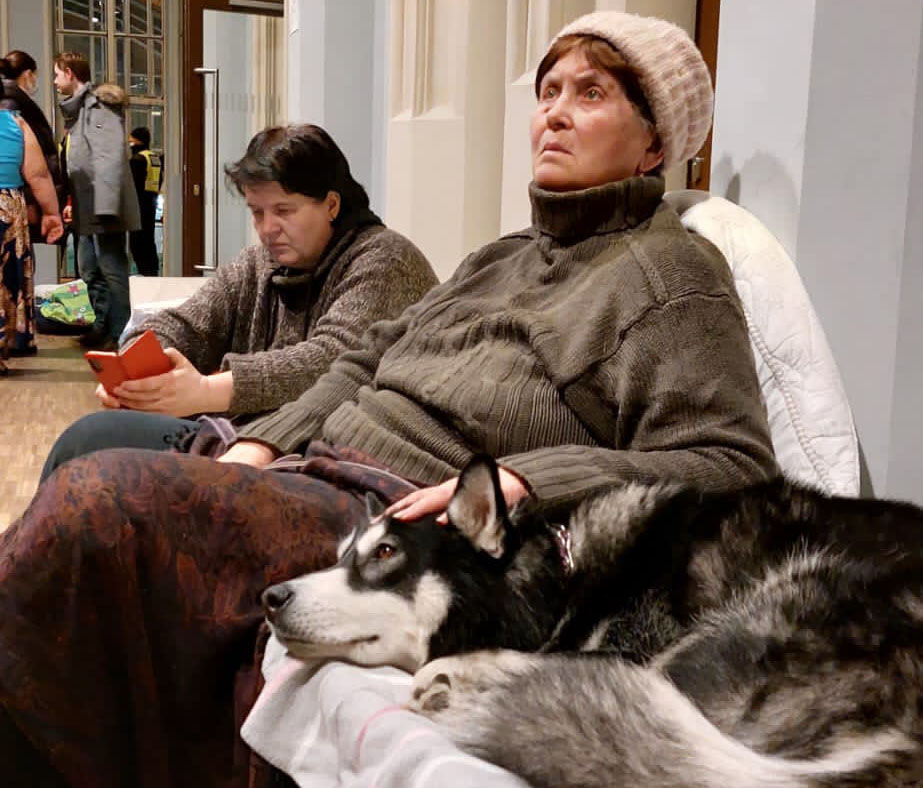
Poland shares a 310-mile border with Ukraine. Wroclaw is located along that border where asylum seekers continue to arrive from their war-torn country. Often, they carry only a small bag of belongings; always, they are met by volunteers who provide food and medical care, primarily treating dehydration and hypothermia.
When Andrzej and Aleksandra arrived at the Wroclaw train station for the first time a couple weeks ago, they saw many Ukrainians who needed food, diapers, blankets.
“They were in shock; most were expressionless; many children were crying,” Aleksandra said.
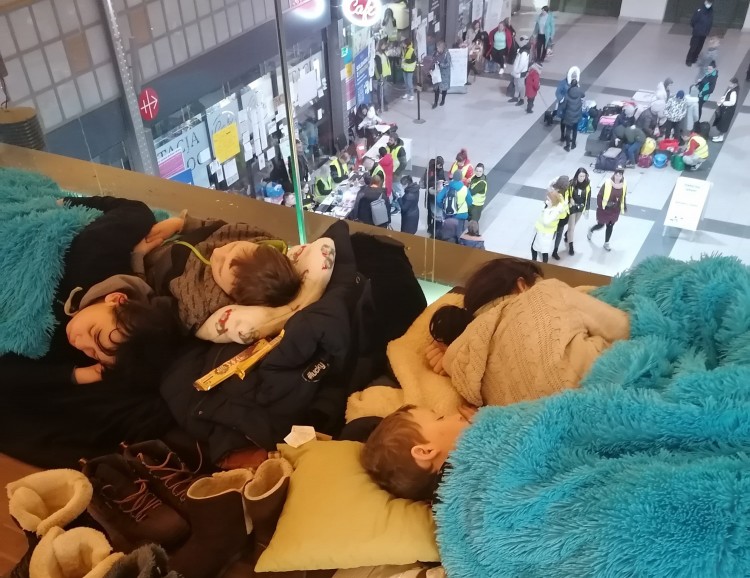
She and her husband took two mothers and four children to stay in a small building in Wroclaw that the couple normally uses for worker housing for their construction business.
“We have a store here that sells bulk quantities of goods,” Andrzej said. “I just started buying things, brought them back to the station and gave them to people.”
He purchased all the supplies with his own money, returning the next day with more diapers, more shampoo, laundry detergent, hygiene items and chocolate eggs for the children. He recalled a five-year-old boy who asked for a chocolate egg for his sleeping brother.
“He put it on the mat so his brother could have it when he woke up,” Andrzej said.
The Peninsula Pulse connected with the Bartosiewicz family through Lisa Harper, who lives in Gills Rock. She met Andrzej and Aleksandra about 15 years ago, when the young couple traveled to the United States as 18-year-olds to earn money to help pay for their university schooling.
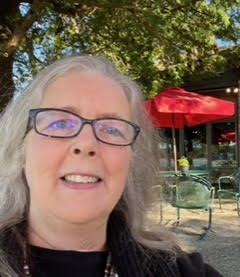
“They did a project in our house when we were living in Milwaukee,” Harper said. “We just fell in love with them. They came every summer; they spent some time with us in Door County. I went to Poland for their wedding.”
As of Tuesday, 3 million people had fled Ukraine since the Russian invasion began on Feb. 24, according to the International Organization for Migration, which is part of the United Nations system that tracks where refugees are headed. It has been called the biggest migration crisis in the history of Europe since World War II.
More than 1.7 million of the total refugees have fled to Poland. Some seek asylum there, where Poland’s government is making social benefits available and opportunities for work. For others, the country is a waystation to other European locations.
“It’s a terrible situation,” Aleksandra said. “Polish people know you can lose everything in one day. We feel that if we have something to give, we will give it because we understand how important it is to help.”
As long as the refugees continue to arrive, Andrzej and Aleksandra will continue to take necessities to the train station. Harper, moved by their commitment, posted a callout on her social media page to raise money to help the couple defray their costs for the supplies. Door County neighbors and friends responded to Harper’s request, and she’s already sent a donation in excess of $1,000.
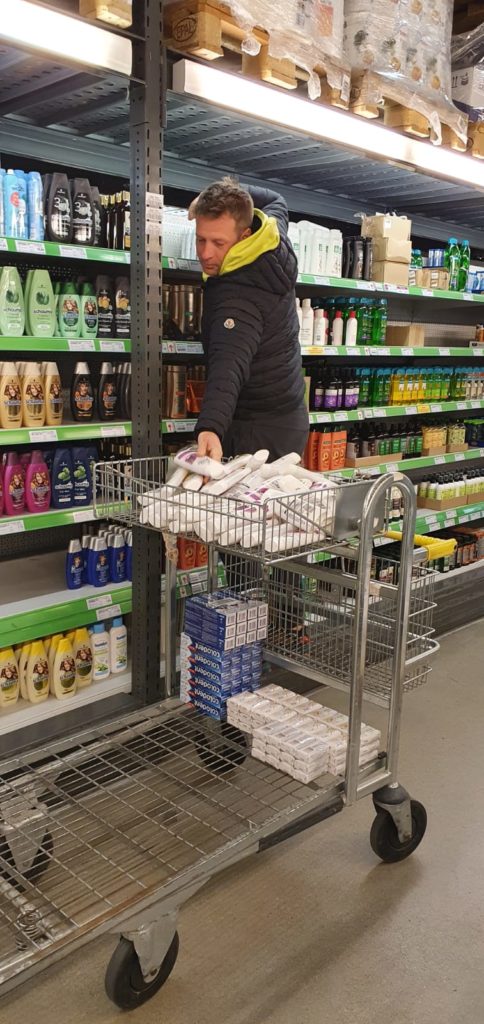
As the war continues, the situation at the Wroclaw station has evolved. It is now staffed by Ukrainian-speaking volunteers who work 12-hour shifts.
“When people bring supplies, they are met by volunteers who take the goods to various storage areas in the station,” Andrzej said. “The people can go to various storage rooms and take whatever they need.”
He said people wait in a long line to visit a volunteer who manages a Facebook page for Polish people to post what they can give, whether it’s baby clothes, a room for a few nights or a ride to another city.
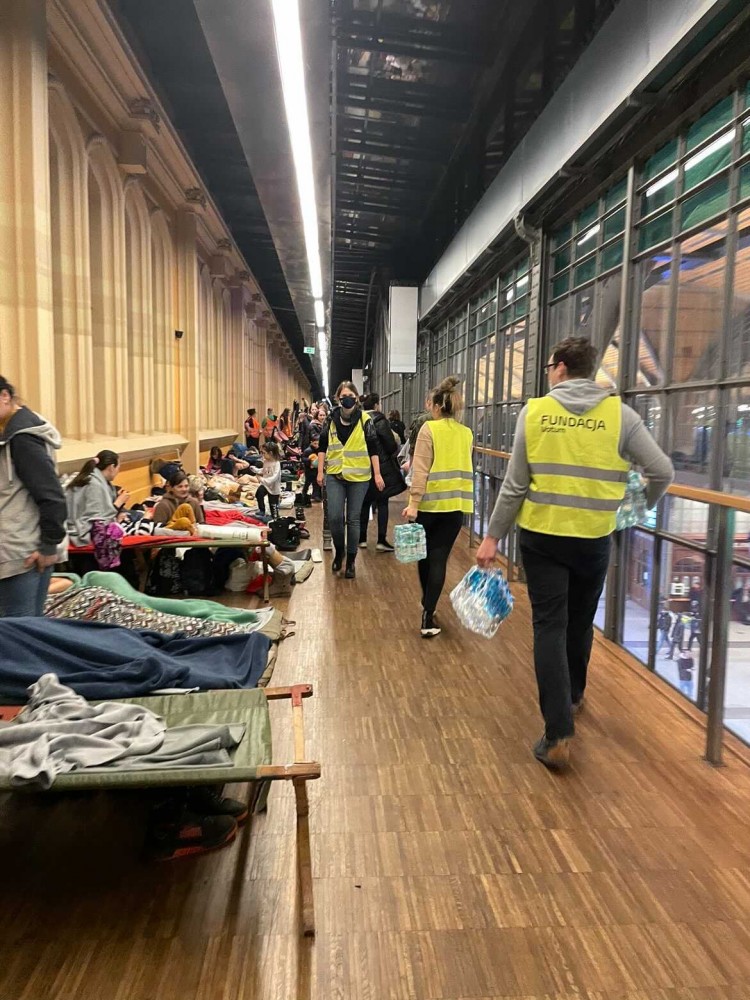
The open-armed welcome from the countries receiving the Ukrainians – Poland, Hungary, Moldova, Slovakia and Romania – has been widely reported. Andrzej and Aleksandra said their compulsion to help starts with their grandparents’ generation, which lived through the invasion and occupation of Nazi Germany during World War II. A generation that made sure it passed down to its heirs the stories of Hitler’s invasion of Poland on Sept. 1, 1939 – an event that would trigger World War II.
“Polish people understand what war means and how cruel it is, so we have this empathy and desire to help Ukrainian people survive,” Aleksandra said. “It’s in our blood.”
